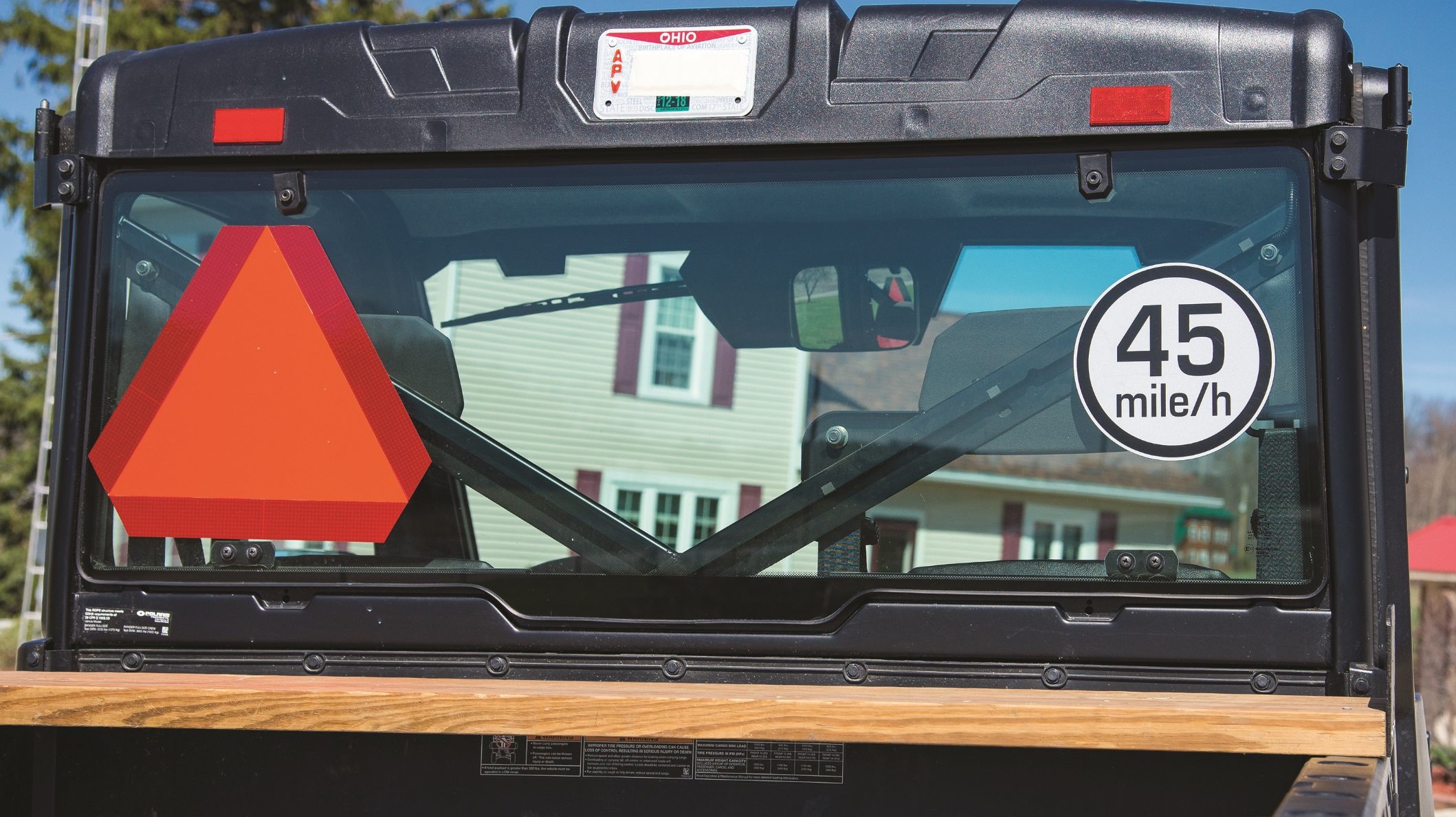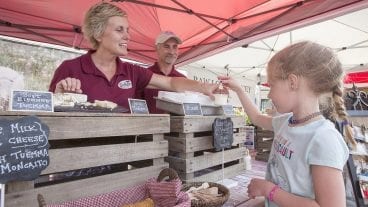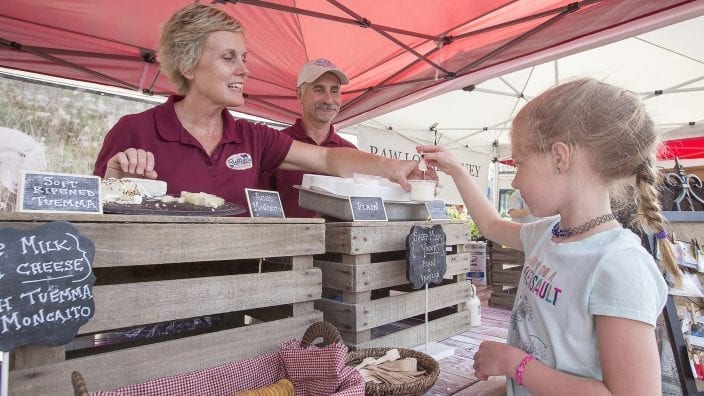Farmer’s Guide to Trucking Regulations available to Ohio Farm Bureau members
The guide includes a farm driver checklist, overview of state and federal regulations and exemptions, CDL qualifications and more.
Read More
Tom Cooke was always looking over his shoulder.
The Richland County Farm Bureau member lives by a highway and was unclear on whether or not he could drive his utility vehicle on the roadway in the course of his usual farm work.
“Many of our members have farms that are separated by roads like these, making it illegal for them to use their utility vehicles for farm work,” said Tony Seegers, OFBF director of state policy.
That all changed when OFBF was successful in having two amendments included in the state’s overall transportation budget. Gov. John Kasich signed the transportation budget into law at the end of March.
The first amendment allows farm utility vehicles that display a slow moving vehicle emblem to travel on a road with a speed limit above 35 mph if going from farm to field in the course of agricultural production. Freeways are excluded.
That is exactly the clarification Cooke was seeking when he contacted Leah Curtis, OFBF policy counsel.
“After doing much research on the Ohio Revised Code, I saw many grey areas that were not in black and white and subject to different interpretations (about the issue),” Cooke said. “I then contacted Leah Curtis, and she agreed.”
While it takes time to get changes implemented at the state level, Cooke said the end result is worth the wait. It didn’t come a moment too soon, either.
“I contacted the large dealer whom I purchased my Ranger from and talked to him about this (change),” Cooke said. “He said that my timing was great, as he spent a lot of time that same day on the phone contacting sheriff departments concerning the issue. He said that he had customers, or potential customers, that were asking about this and would like clarification.”
Ohio Farm Bureau was also successful in getting another amendment added to the state’s transportation budget aimed at helping farmers and rural residents.
That amendment requires notification of proposals to create “limited access” highways so farmers are aware of changes and have time to plan alternate routes. The Ohio Department of Transportation is now required to publish a notice in the local newspaper once a week for two weeks, notify the state’s farm organizations electronically four weeks before the change and take comments from the public on any proposed changes.
“Our members have found that one day they are using a road to get to their fields and the next day they see a limited access sign prohibiting farm machinery. These notifications will be helpful for rural residents who are driving farm vehicles that can’t go down limited access highways,” Seegers said.
Cooke believes the changes couldn’t have been made without the help of Ohio Farm Bureau.
“Now we can drive down the road and not be greatly concerned about different law enforcement interpretations,” he said. “This is huge for farmers across the state who had the same concerns as me. This could not have been accomplished had it not been for Farm Bureau’s involvement.”



The guide includes a farm driver checklist, overview of state and federal regulations and exemptions, CDL qualifications and more.
Read More


The emergency fuel waiver to allow the sale of summer gasoline blends containing 15% ethanol will lengthen the period during which Americans can continue buying E15 from June 1 to Sept. 15.
Read More

The Small-Scale Food Business Guide covers federal and state regulations for selling food products such as raw meat, dairy, eggs, baked goods, cottage foods, fruits and vegetables, honey and more.
Read More

New resources and technology are broadening the different types of sales tools and strategies available to farmers.
Read More

ODA will enroll 500,000 acres into the program for a two-week sign-up period, beginning April 22, 2024, through May 6, 2024. Contact local SWCD offices to apply.
Read More

Katie Share of Columbus has been named ExploreAg and Youth Development Specialist for Ohio Farm Bureau.
Read More

Mary Klopfenstein of Delphos has been named Young Ag Professional and Ag Literacy Program Specialist for Ohio Farm Bureau.
Read More

The plan has been updated to give sole proprietors access to more rate stability and a smart solution that offers potential savings on health care.
Read More

The American Farm Bureau Federation, in partnership with Farm Credit, is seeking entrepreneurs to apply online by June 15 for the 2025 Farm Bureau Ag Innovation Challenge.
Read More

Adele Flynn of Wellington has been elected treasurer of the Ohio Farm Bureau Federation and now holds the third highest elected office in Ohio’s largest and most influential farm organization.
Read More